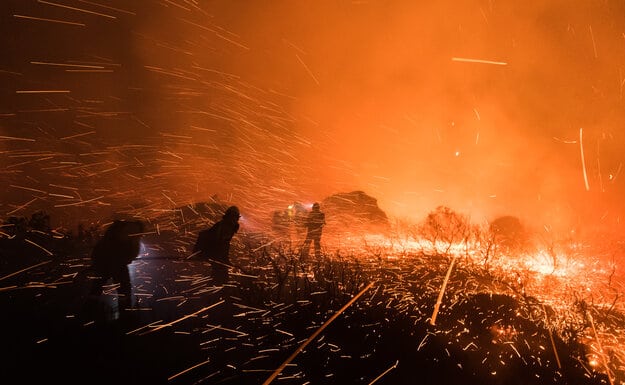Forest wildfires in Siberia caused by a historic hot summer have burned down more than 1 million hectares of land, as heavy smog forces residents housebound and the city’s airport to temporarily halt operations.
—
What is Happening?
- The Russian city of Yakutsk and 50 other Siberian towns have been shrouded in raging wildfires and smoke for days on end following extraordinary high temperatures in the region, with the Sakha-Yakutia region in northeastern Siberia in particular has been hit worst.
- Amidst one of the worst wildfire seasons in Yakutsk – which is known to be one of the coldest cities on the planet in winter, more than 280,000 residents have been affected by the subsequent smog and have been warned to remain at home. Many families have sent small children away from towns and villages for their protection and from the heavy air pollution.
- More than 2,200 firefighters have been battling upwards of 180 forest fires across the region on July 18 alone as government officials deployed two planes over the affected areas to help tackle the fires. Though wildfire season occurs almost annually in the region, the unprecedented widespread scale of this year’s wildfires have also prompted many local residents to join auxiliary fire brigades.
- A recorded 1.5 million of land has already been lost to the blazes, with one fire spreading dangerously close to a hydroelectric power plant.
- Heavy smoke and smog continue to plague 51 towns and cities in Siberia, causing the airport in Yakutsk to temporarily close and halt all aircrafts coming in and out.
- Aside from abnormally high temperatures experienced in Siberia – a similar phenomenon recently occurred in the western region of North America that led to more than 700deaths – a prolonged drought and what has been described to be the driest summer in 150 years has contributed to the intensity of this year’s wildfires. Locals have also laid blame on poor forest management and preparedness, neglect of fire safety rules, a ban on purging dry grass, and the climate crisis.
- Experts fear the forest fires could significantly damage the region’s ecosystem, both short-term and long term.
- A more intense and prolonged wildfire season in Siberia and northeastern Russia means the region is releasing higher amounts of greenhouse gases, which contributes to the ongoing climate crisis and warmer temperatures in neighbouring regions including the Arctic Circle.
You might also like: Alarm as Siberia Experiences Heatwave, With Temperatures 10℃ Above Average
Featured image by EO Photographer: Justin Sullivan


















